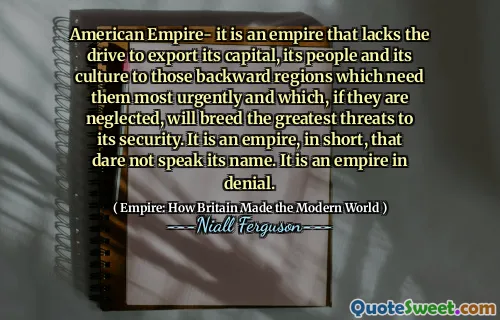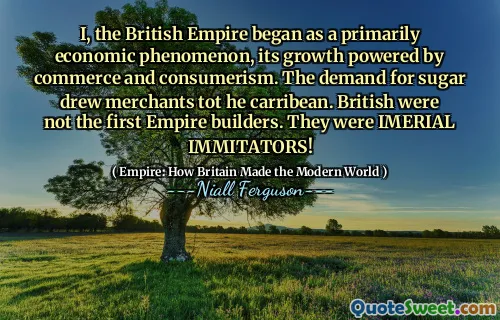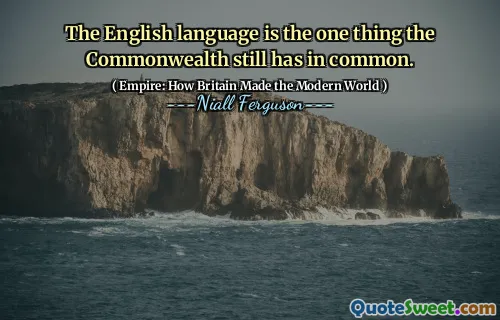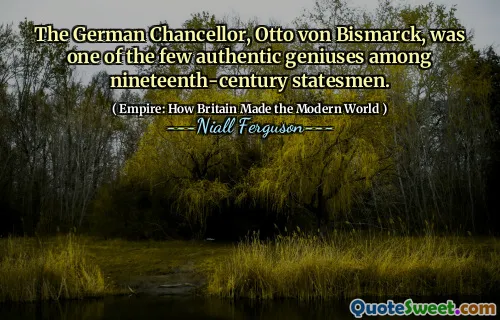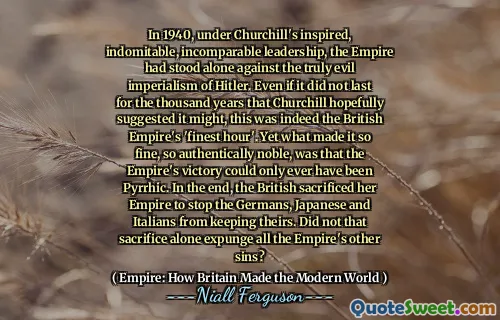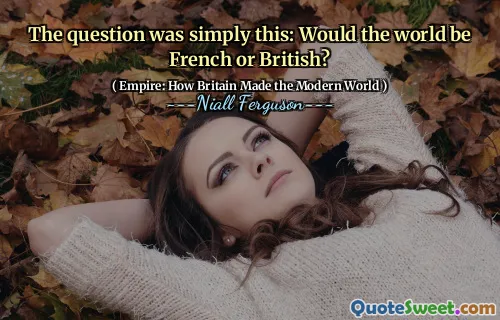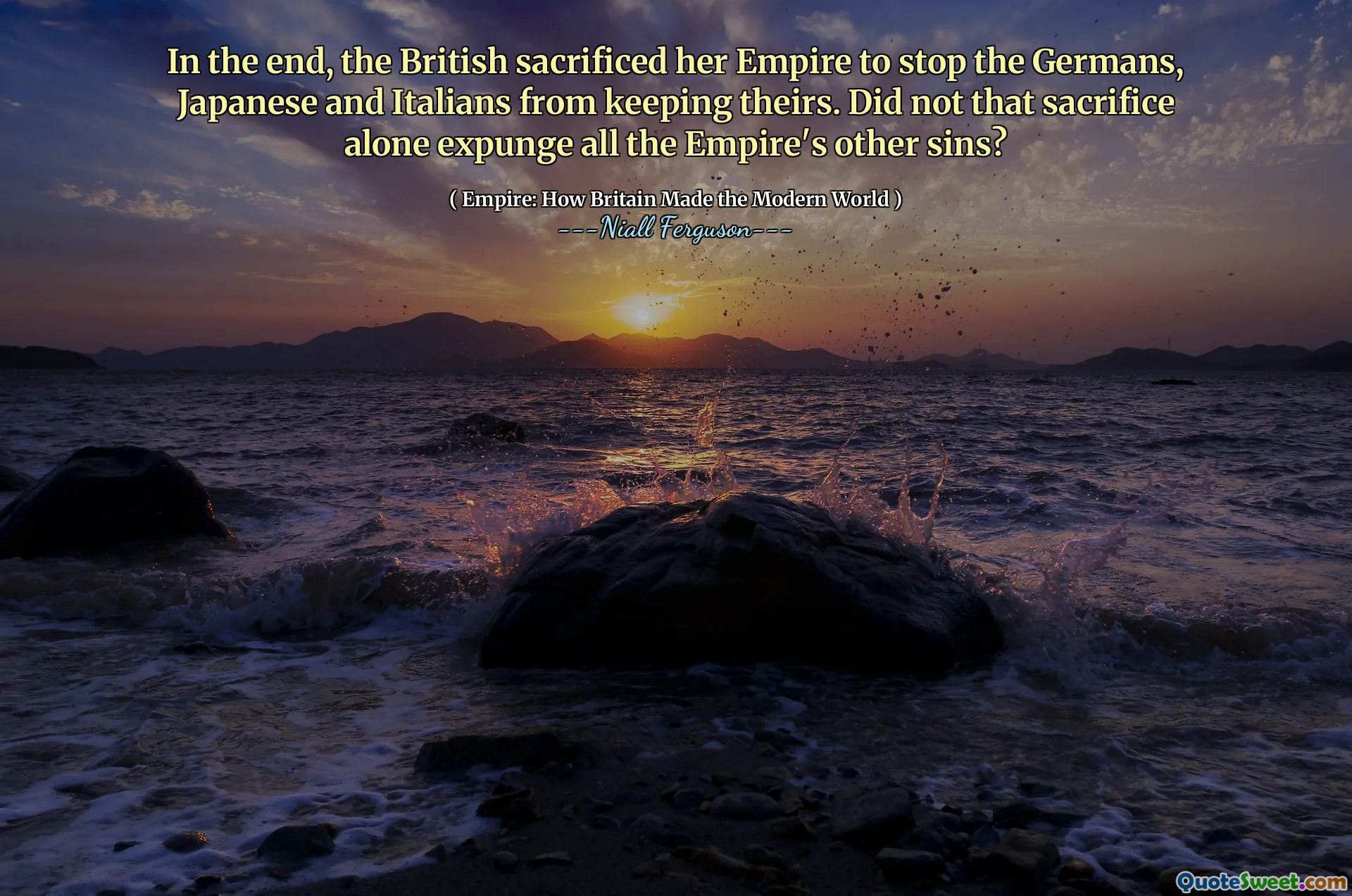
In the end, the British sacrificed her Empire to stop the Germans, Japanese and Italians from keeping theirs. Did not that sacrifice alone expunge all the Empire's other sins?
In his book "Empire: How Britain Made the Modern World," Niall Ferguson examines the complex legacy of the British Empire, particularly during World War II. He argues that the sacrifices made by Britain in the war, aimed at halting the expansionist ambitions of Germany, Japan, and Italy, overshadowed many of the Empire's previous injustices and exploitations. This perspective prompts readers to consider the moral implications of imperial power and sacrifice in the context of world events.
Ferguson's statement highlights the irony that the British chose to relinquish their imperial dominance to combat the Axis powers, suggesting that this act of sacrifice could erase the Empire's historical wrongdoings. It raises questions about the nature of morality in geopolitics and whether the end justifies the means when it comes to national and imperial interests. Such a viewpoint invites a deeper discussion about the lasting impact of empires on modern society.
